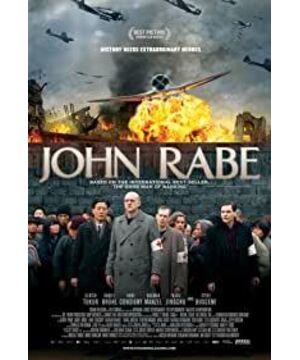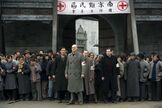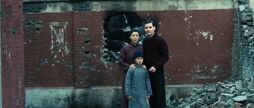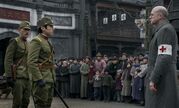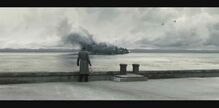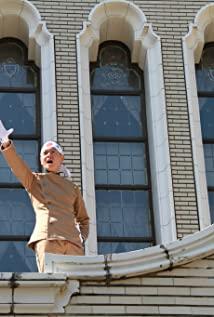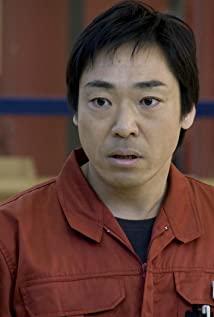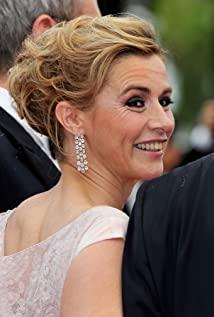Comfort Women
"Rabe's Diary" and "Nanjing! Nanjing! "All involved the rape of women by the Japanese army, and the latter’s accusation against the Japanese army’s brutality, the most inscribed was the Japanese army’s persecution of Chinese and Japanese women, that is, rape or sexual violence, but Lu Chuan’s original intention was not to directly accuse the Japanese army, but to complain." "War" itself. The Japanese comfort woman Yuriko who was in love with Kadokawa in the film finally died in the comfort camp. The "internationalization" of the female victim’s nationality suddenly played down the film’s direct criticism of the Japanese army; the death of Teacher Jiang and the younger sister in the film It was completely out of the "sympathy" of Japanese Kadokawa and Ita for Chinese women. Kadokawa killed Teacher Jiang when she was about to be dragged and raped by the Japanese army. The reason why Ita shot and killed the schizophrenic girl was "She is very beautiful, and not like this." It's better to die". To kill is to kill, but in "Nanjing! Nanjing! In ", the "homicide" contradicts the humanity of the two Japanese soldiers. No wonder some netizens said after watching the movie: The Nanjing Massacre has killed 300,000 Chinese people, "Nanjing! Nanjing! "Another 300,000 Chinese people will be pissed off. Of course, I must say that this statement is biased. Lu Chuan still has their minds, but the things in their heads do not seem to be Chinese, or they want to please foreigners by this!
massacre
In the Nanjing Massacre, the extreme form of its "slaughter" was the "Hundred People Slashing Incident." The Chinese director is obliged to expose the crime against humanity committed by the Japanese at that time, but "Nanjing! Nanjing! There is only a flashing head shot in "Rabe’s Diary", and there are Hundred People Slashing in "Rabe’s Diary" (and it is also mentioned that "Hundred People Slashing" was shown off in Japanese newspapers at the time, and the Japanese people were also very happy). Rabe’s driver, Lao Zhang, was dragged to a hidden place and beheaded because he offended a Japanese officer. Rabe followed his trail and saw the heads of the hills of Chinese people chopped off by the Japanese army through the cracks in the Mucha. In this way, the director confirmed the existence of this brutal historical fact, which should have been done by Lu Chuan. I would say this is "Nanjing! Nanjing! "Very big shortcomings, the film focused on the cruelty of war, but did not restore history, showing the cruelty of the Japanese to the Chinese!
Rabe’s Secretary
Mr. Rabe has a Chinese secretary named Han Xianglin, "Nanjing! Nanjing!" "Tang Tianxiang" is based on Han Xianglin as the character model, and his identity and deeds have many similarities. However, it is necessary to clarify the following:
1. In history, Han Xianglin not only did not become a traitor to protect her family, but on the contrary, she also assisted Rabe to save many people. He was appointed as the grain committee by Rabe and is one of the most important Chinese staff in the security zone. At the end of 1937, the Japanese army planned the Nanjing Massacre. Han Xianglin was in charge of negotiating food issues with Japan. He played an important role in the normal operation of the entire safe zone.
2: Han Xianglin did get a pass, but it was not for her own use, but for a KMT pilot Wang Hanwan. In "Nanjing" "Tang Tianxiang" betrayed the Chinese soldier and got a pass, but at the last moment He chose to stay and let a Kuomintang officer (that is, Wang Hanwan in history) follow Rabe. In history, Han Xianglin did not do this because he never left Nanjing.
3: Han Xianglin was not killed by the Japanese. After Mr. Rabe left Nanjing, he continued to rescue Nanjing refugees, and lived until the victory of the Anti-Japanese War and did not die until the 1980s.
Han Xianglin is one of Mr. Rabe's best friends in China. After the end of World War II, he also testified in court to accuse the Japanese army of atrocities. He wrote "Han Xianglin's Oral: The Japanese Army Hates the International Rescue Organization."
The description of Han Xianglin (Tang Tianxiang) in "Nanjing Nanjing" is suspicion of distorting facts, sensationalizing, and attracting attention. Another contribution to the
accusation of
"Rabe’s Diary" is to reproduce the war crimes of Asaka Miya Hatohiko, who escaped the post-war trial because of his royal status. The Japanese lieutenant who signed the most slaughter orders in the Nanjing Massacre not only did not suffer In the post-war trial, he also served as the president of the Japan Golf Club. He died leisurely in 1981. "Rabe's Diary" is the first film in history to expose the crimes committed by Hatohiko Asakamiya. This perspective greatly breaks through the historical and practical limitations that are tightly troubled by diplomatic relations and political interests. It also shows that China The film’s previous "accusations" of the Nanjing Massacre were far from enough. It is true that some Japanese soldiers blamed themselves for committing too many crimes in Nanjing and other places in China, or even committed suicide in order to redeem their crimes, but all of them with historical evidence occurred after the war. In the Nanjing Massacre, such as Kadokawa killed. The Japanese soldier who committed suicide by the Chinese, curator Tang said, "absolutely never found it." Therefore, Kadokawa’s suicide made "Nanjing! Nanjing! "The value orientation of "has gone wrong. What is the historical basis for the scene of Kadokawa committing suicide in the fertile land of flowers?
Believe in "Nanjing! Nanjing! "The creators of "have studied these histories, but why didn't they have such a sense of responsibility to restore one after another the atrocities of the Japanese army that were covered in dust, including the "Crimes of Asaka Palace Hatohiko"? Did Lu Chuan want to exaggerate it with some kind of "forgiveness" or "harmony" reason? I hope it's just because they are ignorant.
Although I must admit "Nanjing! Nanjing! "Is one of the few films depicting the Nanjing Massacre in recent years of high quality, but the differences in some of the jokes and the above points make me believe in "Nanjing! Nanjing! "There are still deficiencies in some aspects. Of course, "Rabe's Diary" also has a different voice. Some people think that the film is too commercial, cost 20 million US dollars, invited many Chinese, German, Japanese stars to help attract attention, and insufficient description of the killing scenes of the Nanjing Massacre, and so on. But I want to say that this is a foreigner trying to see and experience the Nanjing Massacre from the perspective of a Chinese, which in itself is a big improvement. In addition, the film focuses on Rabe, and the natural description of Rabe himself is also the main focus. His activities, words and deeds are naturally also the center of the film. In fact, the whole Nanjing Massacre was viewed from Rabe’s perspective. However, the other characters in the film are a group portrait with a relatively complete performance. Unfortunately, the film is only 2 hours long and many shots have been deleted. At the same time, scenes of bloody killings and brutal rapes have also been deleted. If we see those shots, we will be even more shocked. Therefore, I am also very looking forward to Huayi's 5-hour TV series "Rabe's Diary".
It must be said that because of the existence of Rabe and his colleagues, he was able to rescue more than 200,000 Chinese compatriots in the "safe zone" of Nanjing. It is his existence and his various true records that can make us Know the true face of the whole incident.
Whatever the reason, I recommend this film. Let us experience the Nanjing Massacre in its strengths and weaknesses.
View more about John Rabe reviews


